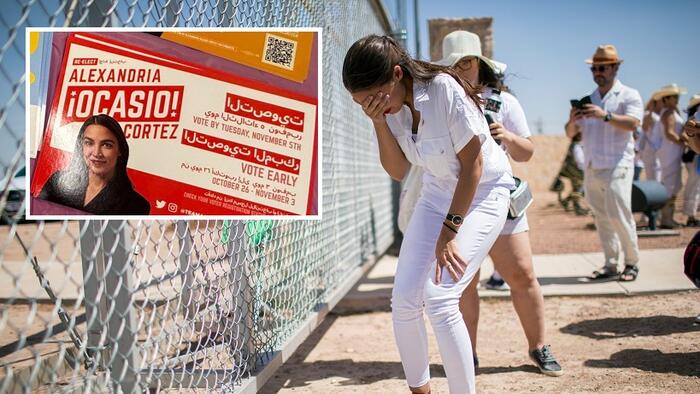Performance artist Alexandria Ocasio-Cortez, often referred to as AOC, has recently faced significant scrutiny for various actions deemed theatrical or misleading throughout her political career. Critics argue that her performances, such as expressing outrage in front of an empty parking lot to protest Donald Trump, reveal a pattern of staging situations to garner attention. A notable moment occurred when Ocasio-Cortez staged her emotional response in front of a closed parking lot gate, which critics highlighted as a disingenuous act lacking genuine context. This incident exemplified what many view as her tendency to dramatize events for political gain, suggesting that her performances prioritize personal narrative over substantive connection to real issues.
The incident on January 6, 2021, further inflamed tensions, as Ocasio-Cortez insinuated that she was in grave danger during the Capitol riot. However, she was not present at the Capitol when the events unfolded, leading to accusations of exaggeration and misinformation. Critics claim her statements about feeling nearly raped or killed were a theatrical device rather than a reflection of actual experience. This pattern of dramatization has led to allegations that AOC leverages her identity as a victim to create a narrative that resonates with her supporters while bending the truth. Such claims have fostered skepticism regarding her credibility, suggesting that her presentations are more performance art than genuine political discourse.
Another instance of AOC’s criticized behavior occurred during a protest advocating for abortion rights, where she was filmed being escorted by Capitol Police while seemingly pretending to be in handcuffs. This staged image evoked mockery from observers who labeled her a “professional victim,” implying that her actions were designed to elicit sympathy rather than represent a realistic portrayal of her situation. The consequences of these portrayals have arguably diminished her authenticity among both supporters and opponents, as her actions appear to prioritize spectacle over substantial activism.
In a recent development, Ocasio-Cortez was accused of releasing campaign materials in Arabic, which many described as nonsensical and poorly executed. Critics pointed out that the Arabic script used in her flyers was improperly formatted, reversing character order and disconnecting letters, a fundamental mistake that undermined the integrity of the language. Experts in the field, like Iranian studies professor Meir Javedanfar, expressed concern, stating that the unintended gibberish showcased a lack of understanding regarding Arabic writing. This blunder has been interpreted as emblematic of AOC’s broader disconnect with Arab and Muslim communities, further reinforcing her critics’ narrative that her outreach efforts may be superficial and governed by optics rather than genuine engagement with marginalized populations.
The failure of Ocasio-Cortez’s campaign materials highlights a broader critique of the Democratic Party’s approach toward Arab and Muslim constituents. Many commentators argue that the party neglects meaningful outreach in favor of performances that lack substance, ultimately failing to address the real concerns of these communities. The poorly executed campaign messages serve as a microcosm of larger political dynamics, revealing a possible contempt for authentic dialogue and connection. Critics posit that this reflects a fundamental misunderstanding or disinterest in the diverse realities of the populations AOC claims to represent.
In conclusion, Alexandria Ocasio-Cortez has been characterized as a performance artist within the realm of politics, prompting significant debate about the authenticity and implications of her actions. From her early staged outrage to her recent communication missteps, many observers argue that she employs theatrical strategies that prioritize political identity and dramatization over substantive change. The backlash against her suggests a growing impatience for genuineness in political discourse, particularly concerning marginalized communities that have historically been overlooked. As the political landscape evolves, the challenge remains for Ocasio-Cortez and similar figures to balance effective advocacy with credible representation.

